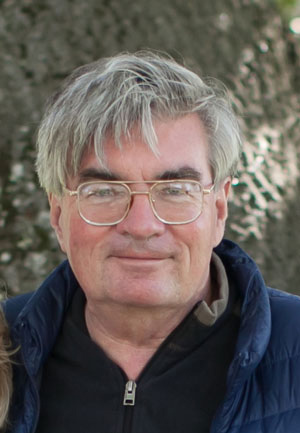A Short History of Sachs
Part 4: Sachs Sells Worldwide
by John Neugent
Tech articles | Commentary articles
Previous post in this series: Sachs history part 3
The late John Neugent probably knew more about bicycle wheels than anyone else. Maybe more about bikes as well. He spent his life in the bike business, at every level. He owned Neugent Cycling, a firm devoted to delivering world-class equipment at the lowest possible price. —Chairman Bill

Author John Neugent
History of Sachs Part Four:

To recap, Sachs bought a number of mostly French companies to compete against Shimano. In the acquisitions were Huret (derailleurs), Maillard (hubs), Sedis (chain), and Modolo (brakes). I was hired to run the US office. While Sachs was well established in Europe, primarily due to their internal gear hub business, they were better known in the US for their automotive rather than bicycle products.
It’s been said, and well documented, that seldom do managers coming from outside the industry succeed in the bicycle business. This is due to the fact that, on the surface, things that spur sales appear illogical. To boil it down to basics, the sport has a far greater influence on sales than seems logical. That is a topic for another article, but even though 99%+ of bicycle sales go to people with no interest in racing, it’s the 1% that influence the industry.
Imagine, as a manager, you go to top management with an argument that is clearly illogical. They will say it doesn’t make sense, and toss out the plan. That’s what happens and happened with Sachs. It took years of minor victories proving the illogical methods actually worked before management would understand.
The US Market was totally different than Germany (the home of Sachs) in that it was almost entirely influenced by the top end of the sport. In that sense, we (my team was more important than I was), were more connected to the type of products Shimano was selling – gruppos.
To make a long story short, eventually, it was an American product manager we sent to Germany (Jonathan Wiant) to help influence product decisions. He was not only a great product manager but also a stellar human being that communicated well with everyone and gained their respect.
A pivotal moment came in the mid-'90s when Scott Montgomery, the head of marketing at Cannondale (and son of the founder) called me and said he wanted Sachs to help sponsor his racing team. While Cannondale was big in the US, they were much more influential in Europe. It offered an entry that we needed. At that time, Cannondale had one of the premier teams in Mountain Biking – the fashion of the time – and Europeans looked to the US as the creator of Mountain Biking. Now, with Road Racing being so popular it’s easy to forget the influence the US had on biking of the '90s.
So we got a toe hold. It’s funny how the winds of business are often not what they seem. The whole “derailleur division” of Sachs was now beginning to show a profit, something that eluded them up until that time. What I was unaware of was that the company owning Sachs (Mannesmann – a very large German company) had actually been looking to get rid of the bicycle division. The fact that it was now more profitable was exactly what they needed to spur the sale.
They eventually sold it to Sram. Although Sram bought it for a good price, there were a lot of challenges. The German factory had much different labor laws than the US and negotiating with the unions was problematic, to say the least. Sram did an excellent job in managing the company and it got them more business in Europe. But as the strange winds of business blow, they eventually had to discontinue the internal gear hub business, which had been huge for them in the beginning. E-bike sales have taken over much of the commuting market, leaving no room for gear hubs.
John Neugent was was one of the first to establish quality hand building in Taiwan around the turn of the century. He now owns Neugent Cycling, a firm devoted to delivering world-class equipment at the lowest possible price.








